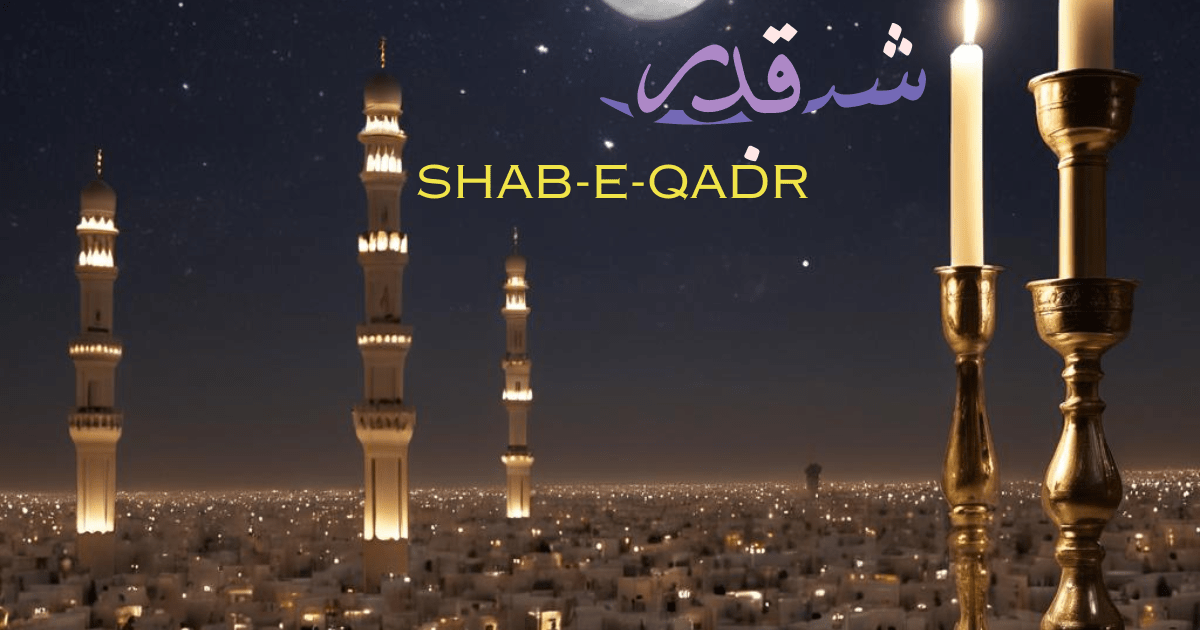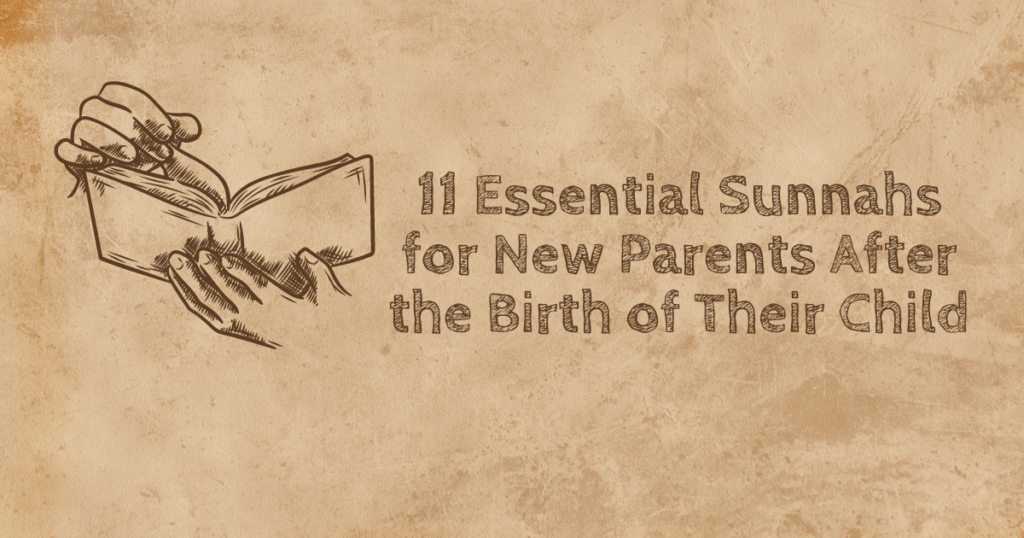
What Is Shab-E-Qadr?
Shab-e-Qadr, also known as Laylat ul-Qadr in Arabic, is a significant night in Islam. It is believed to occur within the last ten nights of Ramadan, the ninth month of the Islamic lunar calendar. The exact date of Shab-e-Qadr is uncertain, but it is generally observed on one of the odd-numbered nights, such as the 21st, 23rd, 25th, 27th, or 29th night of Ramadan.
Shab-e-Qadr holds immense spiritual significance in Islam as it is believed to be the night when the Quran, the holy book of Islam, was first revealed to the Prophet Muhammad by Allah (God) through the Angel Gabriel (Jibril in Arabic). Muslims believe that during this night, divine blessings and mercy are abundant, and prayers are particularly efficacious.
Muslims commemorate Shab-e-Qadr with intense acts of worship, including performing special prayers called Taraweeh, reciting the Quran, engaging in supplication (dua), seeking forgiveness, and engaging in acts of charity and goodwill. Many Muslims spend the entire night in prayer and contemplation, seeking closeness to Allah and seeking blessings and forgiveness.
The importance of Shab-e-Qadr is highlighted in the Quran in Surah Al-Qadr (Chapter 97), where it is described as “better than a thousand months.” This verse emphasizes the extraordinary significance and blessings associated with this auspicious night in Islam.
Why Shab-E-Qadr Is Called Special Night?
Shab-e-Qadr is considered a special night in Islam due to several reasons
- Revelation of the Quran: It is believed to be the night when the first verses of the Quran were revealed to Prophet Muhammad by Allah through the Angel Gabriel. This event marks the beginning of the revelation of the Quran, which is considered the final and most important divine guidance for humanity in Islam.
- Blessings and Mercy: Muslims believe that on Shab-e-Qadr, the blessings and mercy of Allah are abundant. It is said that the rewards for good deeds performed on this night are multiplied many times over, making it an excellent opportunity for spiritual growth and seeking forgiveness.
- Night of Decree: Shab-e-Qadr is also known as the Night of Decree or Destiny. It is believed that on this night, Allah determines the destiny of individuals for the coming year, including matters such as life, death, sustenance, and other important aspects of life. Muslims pray fervently on this night, seeking Allah’s guidance and blessings for the future.
- Superiority over other nights: The Quran describes Shab-e-Qadr as better than a thousand months in terms of its significance and blessings. Therefore, worshipping on this night is considered equivalent to worshipping for a thousand months or more, emphasizing its extraordinary importance in the Islamic faith.
Overall, Shab-e-Qadr is regarded as a special night due to its association with the revelation of the Quran, the abundance of blessings and mercy, its designation as the Night of Decree, and its superiority over other nights in terms of spiritual rewards and significance in Islam.
5 things To Do In Shab-E-Qadr | Laylat-ul-Qadr
Here are five things that Muslims commonly do on Shab-e-Qadr
- Perform Night Prayers (Taraweeh and Tahajjud): Devote the night to performing extra prayers, including Taraweeh, which are special prayers performed in congregation in Ramadan, and Tahajjud, which are voluntary prayers performed during the latter part of the night. These prayers are meant to seek forgiveness, blessings, and closeness to Allah.
- Recite the Quran: Spend time reciting and reflecting upon the Quran, particularly focusing on its significance and the blessings associated with its revelation on Shab-e-Qadr. Many Muslims aim to complete the recitation of the Quran at least once during Ramadan, and Shab-e-Qadr presents an excellent opportunity to progress in this endeavor.
- Engage in Supplication (Dua): Offer heartfelt supplications and prayers, asking Allah for forgiveness, guidance, blessings, and fulfillment of needs. Shab-e-Qadr is believed to be a night when prayers are readily accepted, so Muslims seize this opportunity to earnestly beseech Allah for mercy and blessings for themselves and others.
- Seek Forgiveness: Reflect upon one’s actions and seek forgiveness for sins and shortcomings. Muslims believe that Shab-e-Qadr offers a chance for repentance and purification of the soul, so they actively seek forgiveness and strive to mend their relationship with Allah and others.
- Engage in Acts of Charity and Good Deeds: Demonstrate generosity and kindness by engaging in acts of charity and good deeds. Muslims believe that charitable actions carry special significance on Shab-e-Qadr and can multiply the rewards manifold. Therefore, they may donate to the needy, help those in distress, and spread kindness and compassion in their communities.
Tips For Last 10 Nights of Ramadan (Last Ashra)
Tips for making the most of the last ten nights of Ramadan, also known as the Last Ashra
- Increase Worship: Utilize these precious nights to increase your worship and devotion. Engage in extra prayers such as Taraweeh, Tahajjud, and Witr. Allocate more time for reciting the Quran, making dhikr (remembrance of Allah), and offering voluntary prayers.
- Seek Laylat ul-Qadr: The Night of Decree (Laylat-ul-Qadr) falls within the last ten nights of Ramadan, with a high likelihood of being on one of the odd-numbered nights (21st, 23rd, 25th, 27th, or 29th). Strive to seek Laylat-al-Qadr by intensifying your worship, supplication, and remembrance of Allah during these nights, as its blessings are immense.
- Reflect and Repent: Take time to reflect on your actions and seek forgiveness for any shortcomings. Ramadan is a time for spiritual renewal and purification, and the last ten nights offer an excellent opportunity for sincere repentance and seeking Allah’s mercy.
- Give Charity: Emphasize acts of charity and generosity during these nights. Donate to the needy, support charitable causes, and extend a helping hand to those less fortunate. Giving charity during Ramadan, especially in its final days, is highly encouraged and carries immense rewards.
- Make Dua: Increase your supplications and heartfelt prayers. Beseech Allah for guidance, forgiveness, and blessings for yourself, your loved ones, and the entire Muslim Ummah. Remember to include prayers for peace, unity, and prosperity worldwide.
- Maintain Good Deeds: Continue performing acts of kindness, righteousness, and piety throughout the last ten nights of Ramadan. Uphold your fasting, fulfill your obligations towards others, and strive to embody the values of Islam in your actions and behavior.
- Stay Vigilant: Maintain a state of spiritual vigilance and mindfulness throughout the last ten nights. Avoid distractions and prioritize your worship and devotion to Allah. Guard against negative influences and strive to maintain a heightened sense of consciousness and awareness.
By implementing these tips, you can make the most of the last ten nights of Ramadan, seeking spiritual growth, closeness to Allah, and the abundant blessings of this blessed month.
What Duas Do We Make On Laylat-ul-Qadr?
On Laylat al-Qadr (the Night of Decree), Muslims make various supplications (duas) seeking blessings, forgiveness, guidance, and mercy from Allah. Here are some recommended duas that are commonly recited on Laylat al-Qadr
Dua #1

Dua for Seeking Laylat-ul-Qadr
“Allahumma innaka ‘afuwwun tuhibbul ‘afwa fa’fu ‘anni” “O Allah, You are Most Forgiving, and You love forgiveness; so forgive me.
Dua #2

Dua for General Blessings
“Rabbana atina fid-dunya hasanatan wa fil-akhirati hasanatan waqina ‘adhaban-nar” “Our Lord, give us in this world [that which is] good and in the Hereafter [that which is] good and protect us from the punishment of the Fire.
Dua #3

Dua for Mercy and Guidance
“Rabbighfir warham wa anta khairur rahimeen” “My Lord, forgive and have mercy, and You are the best of the merciful.”
Dua #4

Dua for Guidance and Strength
“Rabbana la tuzigh quloobana ba’da idh hadaytana wahab lana milladunka rahmah innaka antal Wahhab” “Our Lord, let not our hearts deviate after You have guided us and grant us from Yourself mercy. Indeed, You are the Bestowed.”
Dua #5

Dua for Acceptance of Worship
“Allahumma taqabbal minni innaka antas Samee’ul Aleem” “O Allah, accept from me. Indeed, You are the Hearing, the Knowing.”
Dua #6
Dua for Strength and Patience

“Allahumma inni a’oodhu bika minal ‘ajzi wal kasal, wa a’oodhu bika minal jubni wal bukhl, wa a’oodhu bika min ghalabatid-daini wa qahrir-rijaal” “O Allah, I seek refuge in You from helplessness, laziness, cowardice, miserliness, and overpowering debt, and from being overpowered by men.”
These are just a few examples of the numerous duas that can be recited on Laylat al-Qadr. Muslims are encouraged to supplicate sincerely from their hearts, seeking Allah’s mercy, forgiveness, and guidance on this blessed night.
4 Signs That It Might Be Laylat-ul-Qadr
In Islam, there are several signs believed to indicate that it might be Laylat al-Qadr (the Night of Decree).
1. Laylat al-Qadr Falls On The Last Odd Nights
It is said that Laylat-ul-Qadr will fall on any of the last ten odd nights (21, 23, 25, 27, and 29 nights of Ramadan.) In Sahih Bukhari, it is narrated that Prophet Muhammad (PBUH) came out intending to tell the people about Laylatul Qadr when he saw two men arguing about when the blessed night is. The Prophet (PBUH) said: I came out to inform you about Laylatul Qadr but so and so, were arguing, so it was raised up, and perhaps that is better for you, so seek it on the 29th, 27th 25th.” SAHIH BUKHARI
2. The Weather Will Be Pleasant During Laylat-ul-Qadr
In Sahih Al-Jami’, the Prophet (PBUH) said: “ ٌ ة َ ِد وال بار ٌ ة َّ ، ال حار ٌ ة َ ِ ق ل َ ، ط ٌ ة َ سِمح ٌ ليلة ِ ر ْ القد ُ “ليلة “The night of Qadr is calm, serene, and peaceful. It is not hot nor is it cold…”
3. The Moon Look Like A Bowl/Plate During Laylat-ul-Qadr
Sayyiduna Abu Hurayrah reported that the Prophet Muhammad (PBUH) said: Who amount you recalls when the moon appears/rises looking like a piece of a bowl”. SAHIH MUSLIM, HADITH 1170
4. Spontaneous Occurrences of Goodness:
Laylat-ul-Qadr is believed to be a night when blessings are abundant and prayers are readily accepted. Therefore, believers may notice spontaneous occurrences of goodness, such as increased acts of charity, kindness, and positive events in their lives.
Conclusion
Laylat-ul-Qadr holds significant importance in Islam as the Night of Decree, believed to be the night when the Quran was first revealed to Prophet Muhammad. It is a time of immense blessings, forgiveness, and spiritual elevation. Muslims around the world strive to seek Laylat al-Qadr during the last ten nights of Ramadan, engaging in worship, supplication, and acts of devotion. While signs such as a sense of peace, brightness in the sky, cool weather, and spontaneous goodness are associated with Laylat al-Qadr, its exact timing remains known only to Allah. Therefore, believers are encouraged to intensify their efforts in worship and reflection during these nights, seeking Allah’s mercy, forgiveness, and guidance. By embracing the teachings and practices of Islam during Laylat al-Qadr, Muslims aim to strengthen their faith, purify their souls, and draw closer to Allah, embodying the spirit of devotion and righteousness exemplified in the teachings of Islam.
May Allah give you the best rewards for your good deeds and may all your dua get accepted . Aameen!



